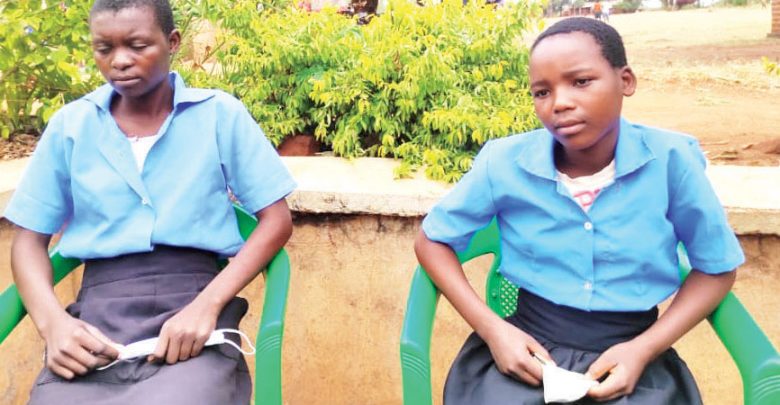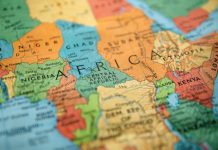Africa-Press – Malawi. At eight years, Shakira Chimowa’s dream is to become a teacher. Shakira draws her inspiration from her own teachers at Namwanje Primary School in Blantyre Rural East Constituency. The teachers at the school are accorded the dignified moniker of “Madam” by learners and other school staff.
Namwanje lies on the outskirts of Malawi’s commercial city, Blantyre. Like in most rural parts of Malawi, role models for girls like Shakira are rare and female teachers come close.
“I like it when we call our teachers ‘Madam’. I want people to call me Madam one day when I am done with school,” Shakira says. However, like many children of her age, Shakira finds that there are many odds stack up against her in her innocent quest to attain a good education.
The list of problems is long, but it is the sheer lack of basic learning materials at her school and the long distance she has to cover to reach it that bother her the most.
To compound matters, in the vicinity of Namwanje school is the river Lirangwe. The brook becomes impassable during the rainy season, making it difficult for Shakira and other children to reach school.
Just a few metres from Shakira’s school is Namwanje Community Day Secondary School, where 17-year-old girl Triphonia Makondetsa from the area of Traditional Authority Lundu in Blantyre Rural was selected to pursue her secondary education in 2018.
Triphonia walks for over two hours, covering the length of the bushy road to attend classes every day as the conventional road is windy and delays her stride to school.
As she was joining the school, she had eight female classmates from the same village, four of which dropped out before sitting Junior Certificate of Education (JCE) examinations while the other four dropped out later in form three after being impregnated and married off.
The 17-year-old is the only survivor who endures the long distance in an effort to bail herself out of the poverty trap, which has enslaved her family for decades.
“I wake up at 3:30am to prepare myself for the journey to school and, normally, after knocking off at 16:00 hours, I arrive home at around 19:30 hours and, to be honest, I am always so exhausted that it is difficult to study with a lantern,” she says.
Walking alone to school is scary as, being a girl, she is vulnerable to rape and all kinds of danger. “Sometimes I walk with some boys from school but they always laugh at me and ask me why, unlike my friends, I did not just drop out of school but I always tell them that I want to complete my studies and become a productive citizen,” she says.
As if walking the long distance were not enough, learners from the two schools have a river to cross, Lirangwe, which has no bridge. Another student, Vera Kabonja, who is in form one and expecting to sit JCE examinations next year, says, for her to get to school during the rainy season, she coughs K400 every day to pay some boys who take advantage of the situation and help her cross the river at a fee.
“The major challenge is how to get to school and attend classes during the rainy season. We pay K200 for one-way and when I do not have the money I am forced to miss classes,” Vera says.
Namwanje Community Day Secondary School is grappling with the problem of a high drop-out rate as a result of the challenges that students face to access education services. Out of an initial enrollment of 300, only 173 remain in class.
The school’s headmaster, McKinley Banda, says the school was supposed to have over 300 students but the current enrollment is at 173 due dropouts, with 30 girls, on average, dropping out of school in all forms.
“It is difficult to access education services in this area because most students, including girls, cover long distances to get to school. Some travel for over 20 kilometers one-way and report to school very late thereby missing some lessons. Some learners have to cross Lirangwe River, which becomes impassable during the rainy season as there is no bridge,” Banda says.
Banda says, when it starts raining while some learners are at home, they choose to forgo classes, hence disrupting their studies. “This has contributed to high dropout rates. The other challenges are those of early marriages and pregnancies. We have seen a lot of girls dropping out of school to the extent that, when we have 50 girls in form one, only 13 or less will still be in school when they get to form four,” Banda says.
The absence of a bridge across Lirangwe River is the major challenge forcing girls to drop out of school, apart from poverty and lack of role models. Namwanje Zone Primary Education Adviser, Harry Dauti, acknowledges the challenge and says they reported the matter to the authorities.
“This is big problem in my area. We reported the issues to the authorities and they promised to construct the bridge once they identify donors. We, as a zone, are also thinking of inviting members of Parliament for both sides [Blantyre Rural East and Blantyre North East] to ask them to do something about the challenge to ease this problem,” Dauti says.
On the other hand, the government acknowledges the challenge girls in the country are facing to access quality education services. In the 2021/22 budget, the government has allocated funds to construct 92 secondary schools which will create 18,400 spaces in rural areas— the overall goal being to construct 250 community day secondary schools by the end of 2023.
Education Minister Agnes NyaLonje says this will go a long way in promoting access to education in the country. “The current administration is doing all it can to ensure that the right to education is realised in the country,” she says.
However, this is not enough as demand for secondary education services is still high. If challenges Vera and others face to access quality education services are not addressed, Shakira’s dream of becoming “madam” may be shattered.






